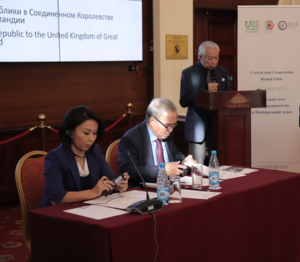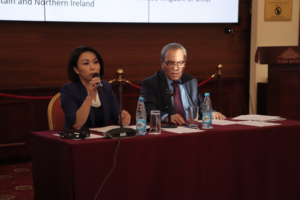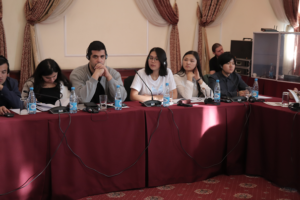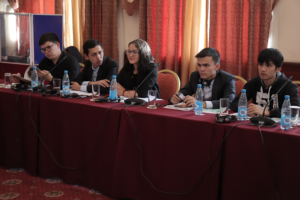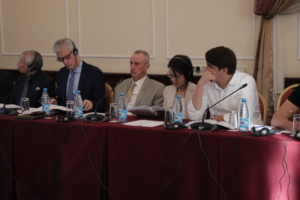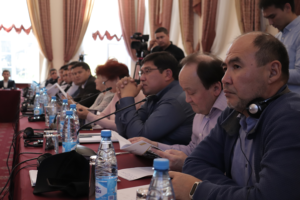Mass Media of Central Asia in 21st Century
2019 - November
The October roundtable was about “Mass Media of Central Asia in 21st Century”. The expert was Doctor of Science in Philology, former Ambassador of Kyrgyzstan to England (2006-2010), Chairman of PF «Journalists» Kuban Mambetaliev.
This talk was special because with extra support of TNF and JACAFA, the roundtable was included in the Alumni program of TNF and JACAFA. There were representatives of Embassies, International Organizations, faculty members of journalism program of universities in Bishkek, and, of course, Alumni and new scholarship recipients.
The media in Central Asian countries began its development after gaining sovereignty after the collapse of the USSR. In this process, each country has been practicing its own path with both positive and negative news. They have one thing in common: in all states the media has two positions both with, state newspapers, radio, television, news agencies, and non-state mass media. The difference is that in one country these positions are somehow opposed to each other, and in another country they are almost leveled in one line without confrontation.
Expert started telling about the history of mass media in Central Asia in past decades, and how they reacted to happenings in their countries. Examples of different journalism experiences were presented.
For print media, the expert recommended the followings:
- All authorities of the country (executive, legislative, judicial, presidential) to leave the status of the founder of newspapers and magazines at all levels – republican, regional, district, departmental.
- Legislatively consolidate all power structures to act as the founder of newspapers or the holder of a controlling stake in the media.
- Government should collaborate with civil society working on freedom of speech. Media should not be centralized in a country as a legacy of USSR. Active and constructive participation of civil society groups should in prerequisite for a government.
- The restrictions on freedom of speech by government must be reasonable and proportionate and must not render freedom of speech illusory or make it ineffective.
- Unbearably rude or offensive types of expressions should be dealt with by society (civil society groups dealing with mass media), not by the state. In other words, the state should not take a regulating position in freedom of speech.
This event was sponsored by The Nippon Foundation (TNF) and Japan Central Asia Friendship Association (JACAFA)
